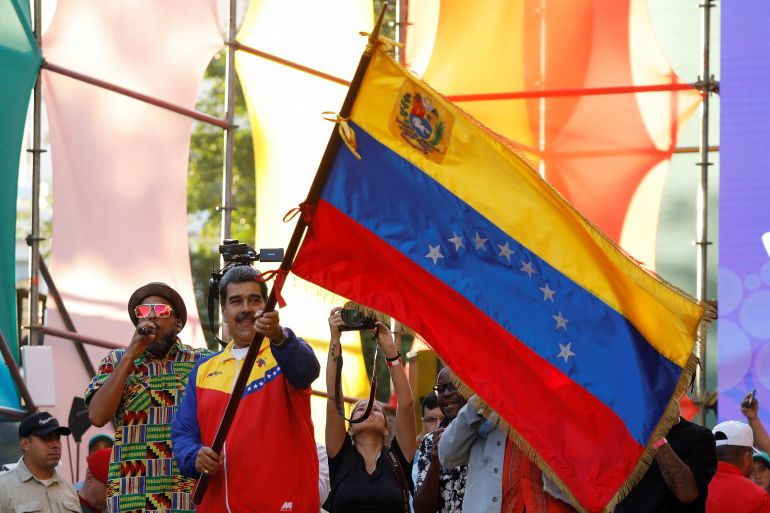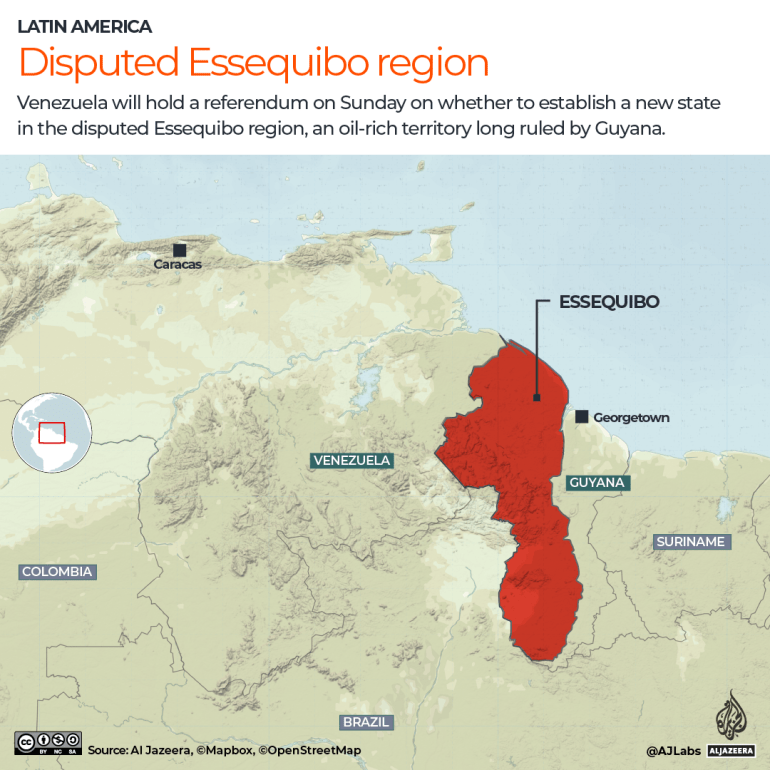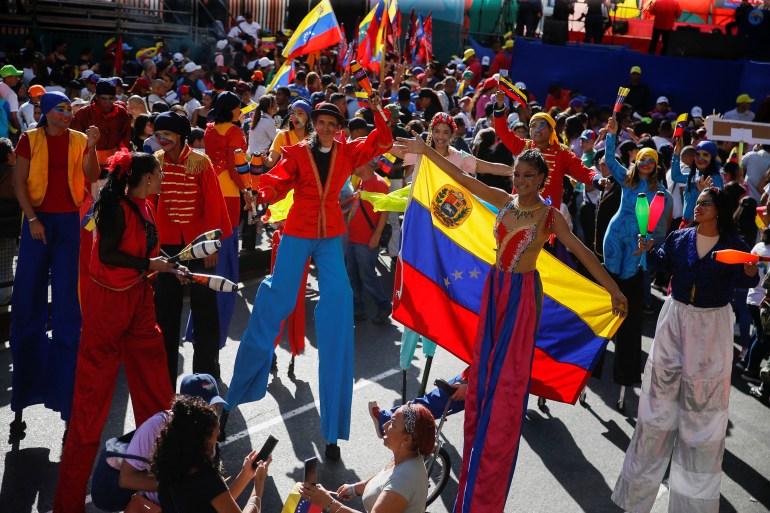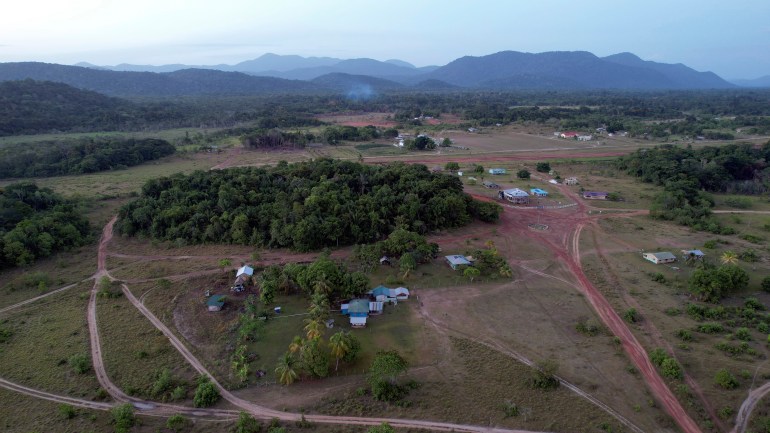Venezuela holds referendum on oil-rich Guyana region: Four things to know
Sunday’s referendum will be held over the fate of Essequibo, an oil-rich Guyana-ruled region that Venezuela claims as its own.

Venezuela is set to hold a referendum on Sunday on whether to establish a new state in a disputed, oil-rich territory long ruled by Guyana.
The vote comes after the International Court of Justice (ICJ) urged Venezuela to refrain from “taking any action” that could alter the status quo in the region. However, it did not specifically ban Caracas from holding the referendum as Guyana had requested.
Keep reading
list of 3 itemsDeath toll in Guyana dormitory fire rises to 20
From Ghana to Guyana, hope mounts in fight against suicide criminalisation
Friday’s ruling is the latest development in the larger border dispute. The ICJ said in April that it had jurisdiction over the case but a final ruling could be years away.

Here is what to know about the vote and the dispute.
A referendum in Venezuela
Venezuela will go ahead with a referendum on December 3, over its rights to a potentially oil-rich territory that is the subject of a border dispute with Guyana.
The referendum will ask Venezuelans five questions, including if they agree with creating a new state called Guayana Esequiba in the Essequibo region, granting its population Venezuelan citizenship as well as identity cards and incorporating that state into the map of Venezuelan territory.
Guyana fears that the referendum could be a pretext for a land grab. “The collective decision called for here involves nothing less than the annexation of the territory in dispute in this case,” Paul Reichler, an American lawyer representing Guyana, told the ICJ. “This is a textbook example of annexation.”
The Venezuelan government has not explained how it would create the state should voters approve it. The referendum is also described as consultative.
However, the ICJ said there was a “serious risk of Venezuela acquiring and exercising control and administration of the territory in dispute in the present case”.
Political analysts expect voters to approve the proposal, given the lack of any “no” campaign and the likelihood that voters who are opposed will stay home.

Dispute between Venezuela and Guyana
Caracas considers Essequibo as its own because the region was within its boundaries during the Spanish colony.
The Guyanese government insists on retaining the border determined in Paris in 1899 by an arbitration panel, while claiming that Venezuela had agreed with the ruling until it changed its mind in 1962.
Caracas claims that the Essequibo River to the region’s east forms a natural border and has been recognised as such since 1777.
It dismisses the 1889 ruling. During those negotiations, the United States represented Venezuela on the panel in part because the Venezuelan government had broken off diplomatic relations with the United Kingdom.
Venezuelan officials contend that the Americans and Europeans conspired to cheat their country out of the land and argue that a 1966 agreement to resolve the dispute effectively nullified the original arbitration. Guyana maintains that the initial accord is legal and binding.
Friction between the countries has increased since 2015 as a result of oil exploration operations by ExxonMobil and other companies in offshore areas intersecting the disputed territory.
The Venezuelan government maintains that Guyana does not have the right to grant concessions in maritime areas of the Essequibo.

The relevance of the Essequibo
The territory larger than Greece, known as “The Essequibo,” amounts to more than two-thirds of the territory of Guyana and is home to 125,000 of its 800,000 citizens.
The 159,500sq km (61,600sq-mile) area is located in the heart of the Guiana Shield, a geographical region in the northeast of South America and one of the four last pristine tropical forests in the world mined with natural and mineral resources, including large reserves of gold, copper, diamond, iron and aluminium among others.
The region also has the world’s biggest reserves of crude oil per capita. Just last month, Guyana announced a “significant” new oil discovery, adding to estimated reserves of at least 10 billion barrels – more than Kuwait or the United Arab Emirates.
With these resources, the country is set to surpass the oil production of Venezuela and by 2025, according to projections, the country is on track to become the world’s largest per-capita crude producer.
Exxon and its partners – the US-based Hess Corp and China’s CNOOC – are the only active oil producers in Guyana. Their projects are expected to reach 1.2m barrels per day of output by 2027, turning Guyana into one of Latin America’s most prominent producers, only surpassed by Brazil and Mexico.
International reactions
Brazil’s top diplomat for Latin American affairs, Gisela Maria Figueiredo, said on Thursday that President Luiz Inacio Lula da Silva’s administration was following the situation with “concern”.
In the US, which has close relations with Guyana, National Security Council spokesman John Kirby appealed for a peaceful resolution to the dispute.
Analyst Rocio San Miguel of the Citizen Watchdog on Security, Defense and the Armed Forces said that while Venezuela has significantly more military power than Guyana, it would not be able to stand up to Guyana’s allies, which include the US.